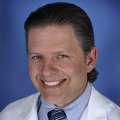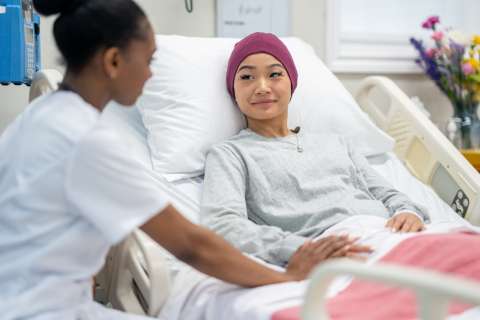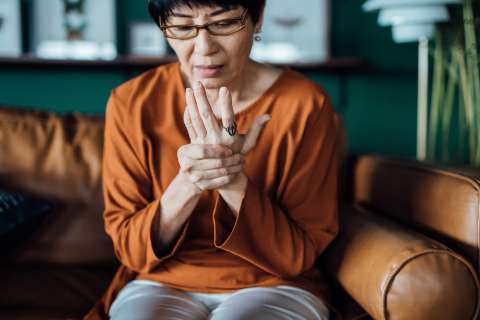There may be no greater transformational gift in medicine than the ability to help patients realize the life they were meant to live instead of the one that fate assigned them.
With a multidisciplinary team of skilled physicians, UCLA Health has built one of the country’s most comprehensive gender health programs — rooted in the belief that transgender and gender-diverse people should not have to struggle to find sensitive and compassionate health care.
Recognized by the Human Rights Campaign Foundation as a “Leader in LGBTQ+ Health Equality,” the UCLA Gender Health Program offers inclusive care across the spectrum of gender-health services, including primary care, reproductive health and fertility, hormone therapy, behavioral health, pediatric care, voice therapy and gender affirmation surgeries.
The latter fall under the supervision of Gladys Ng, MD, MPHD, assistant professor of urology and genitourinary reconstruction at the David Geffen School of Medicine at UCLA.
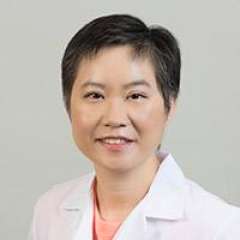
Since 2019, Dr. Ng has conducted more than 50 gender affirmation surgeries, which include genital procedures such as vaginoplasties and metiodioplasties, at UCLA. Most recently, Ng has been performing an average of one surgery every other week.
"You know, COVID did put a damper on things, so now we're back in full,” Dr. Ng said. "For me, it's a very gratifying experience to help these individuals achieve their true self."
Because of her background in genitourinary reconstructive surgery and urethral stricture surgery, Dr. Ng expanded her skills to the Gender Health Program's affirmation efforts. She spent time in the United Kingdom and Serbia’s Belgrade Center for Genital Reconstructive Surgery studying with doctors who had pioneered gender affirmation surgeries, learning techniques she has modified and is using at UCLA Health.
"It's sad to see that some of my patients have suffered so much in their life," Dr. Ng said. "Many of these patients tell me, 'It changed my life.'”
Given the breadth of services provided through the UCLA Gender Health Program, each patient receives unique care. The overall experience will vary from person to person.
Here are three very personal stories from patients who have worked with the program.
Alice Resnick
Alice Resnick epitomizes the modern-day success story of gender transition.
As a patient at the UCLA Gender Health Program, Resnick was able to achieve her lifelong dream of affirming her true gender identity.
"Finally, I feel like the person I was supposed to be – I feel like myself," the 30-year-old Resnick said. "I was always hyper-feminine. I was born with that feeling. But now I just feel so much more comfortable with myself and with those feelings."
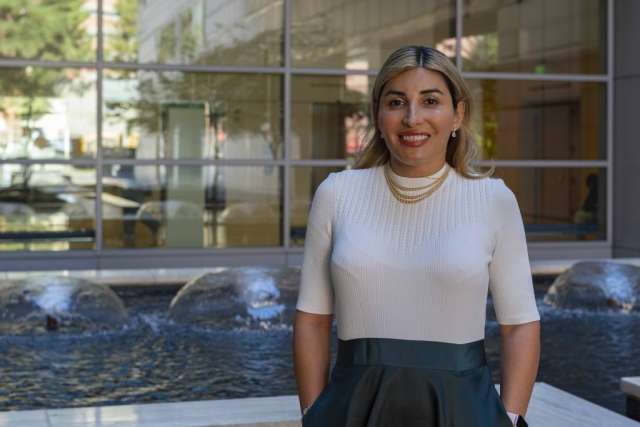
Resnick's new lease on life is due to the work of a team of doctors at UCLA.
After learning about the program in 2016, and spending a couple of years in hormone therapy, Resnick consulted with Dr. Ng at UCLA in April of 2019. She recalls how Dr. Ng explained the surgeries and procedures she would perform to help make Resnick’s dream a reality.
"Wow, she was so amazing. I mean, there was so much information to absorb. But Dr. Ng totally put me at ease. Not just because she had all of the technical expertise, but also because she was so supportive and treated me like a person, not just a patient. She helped me to be very confident and comfortable in pursuing the greatest decision of my life," Resnick said.
Dr. Ng performed critical surgeries in the transition process, including a vaginoplasty in March of 2020. In this particular case and with such a delicate surgery, Resnick required and desired several revisions.
"Dr. Ng was with me every step of the way. She would call and correspond with me between procedures to make sure I was comfortable with the process and feeling good about the next step," Resnick said.
Most importantly, Resnick was fully satisfied with the outcome. "I could not have been happier with the incredible results,” she said. “It feels right, both to me and my boyfriend, who is now my fiancé. It is truly amazing."
To round out the process, and to help Resnick truly feel like a woman, several other UCLA doctors performed their specialties.
Dr. Justine C. Lee, MD, PhD, a craniofacial plastic surgeon at UCLA, performed multiple procedures to provide the feminine appearance that Resnick enjoys today. These procedures included shaving the brow bone, repositioning cheekbones and bilateral eyebrow lifts.
Dr. Lee also made Resnick's nose, upper lip and mouth more feminine. She modified the chin and jawline and performed several procedures grafting fatty tissue on to Resnick's face for a fuller, more feminine appearance.
"It is so satisfying to look into the mirror and see a pretty woman. I look how I feel," Resnick said.
To go with her pretty face and female anatomy, Resnick wanted to align her voice with her gender.
Enter UCLAHealth speech pathologist and communications coach Lisa J. Bolden, MA, CCC-SLP, who worked with Resnick on lowering the lowest portions of her voice while elevating the pitch to a feminine range following a glottoplasty.
"It is nice to be on the phone with someone and have them call me ma'am," Resnick said.
UCLA's George Rudkin, MD, performed a breast augmentation and Carol Cheng, MD, provided laser hair removal.
Resnick uses her experience and satisfaction to counsel other patients interested in going through the program. She tries to put them at ease in the same way others made her comfortable when she was contemplating her transition.
"Mostly I tell them to do what is right for them. Don't worry what others think. Not friends. Not family. Not even your partner. Either they support you or they don't. You have to do what makes you whole and what makes you happy," she said.
The process certainly has made her feel whole.
"When I was a child, I knew I was meant to be a girl. I would even pray at night: Can I please wake up as a girl? Can I please wake up as a girl?"
Patience, hard work and the wonders of modern medicine have made her wishes come true.
Dany Nguyen
Dany Nguyen exemplifies a cultural shift in America toward acceptance of gender transition.
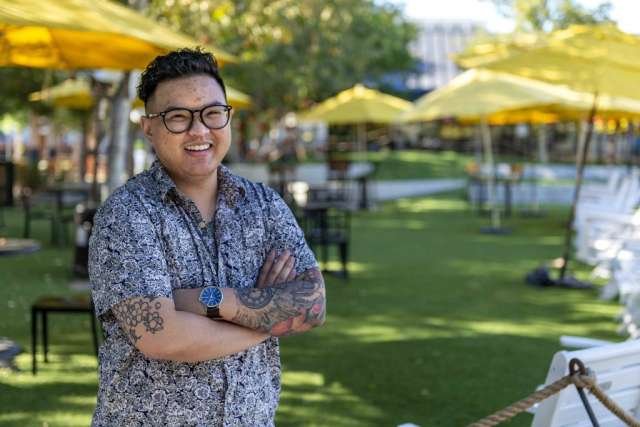
Realizing he had never been comfortable in his own skin as a female, Nguyen was shunned by his family when he announced he was seeking professional help to transition to male. His parents and sister rejected him when he made this announcement in high school, he said.
Kicked out of his home in Garden Grove, Nguyen stayed off the streets by sleeping on friends' couches until his grandmother took him in, even though she also did not approve of his choice to pursue gender transition.
"So I got my support through my friends and cousins until my parents and siblings came around. I told my parents that it made no sense that my friends accept me but my own parents don't," said Nguyen, now 28. "My parents adjusted, and now they are pretty much my biggest supporters. My dad is driving me to my next surgery. So yeah, things have really changed. Once my family learned more about it, they just accepted and supported me."
Nguyen has had nine years of hormone therapy and is undergoing various surgeries to complete the process through the UCLA Gender Health Program.
Feeling out of place in his body for as long as he could remember, Nguyen said even family members noticed at a young age that he didn't act like a typical girl.
"Even though they named me Danielle, I would always introduce myself as Dany or Daniel. In kindergarten, I would get in trouble because I would naturally try to use the boys' bathroom instead of the girls'," Nguyen said. "I always had a feeling that I was just in the wrong body. My mom thought I was just in a tomboy phase so she would dress me as a girl, and it just didn't feel right."
Nguyen went through phases of depression, drug use and thoughts of suicide after his family rejected him and his choice. But now, with his family's support and the treatment he is receiving at UCLA, he feels peace with himself and others.
“This has changed my life for the better. A lot of my friends tell me that I look so much happier now than I did before. I have so much more confidence in life now," Nguyen said. "I have 100% confidence in the doctors and staff at UCLA. All of my surgeries went really well. Any surgery can have complications – whenever there was a complication, they handled it and I knew everything would be OK. They took my needs and goals very seriously and made me very comfortable."
This comfort and confidence have led Nguyen to counsel fellow students at Cal State Long Beach who are thinking about gender affirmation procedures.
"No matter how hard the struggle is, there will always be a positive outcome, it just takes time,” said Nguyen, who is studying business. “If this is the route anyone wants to consider, I let them know they have options. I tell them how positive my experience was with the UCLA program.”
Darius Ardalan
While most 4-year-olds are preoccupied with cartoons, Darius Ardalan was facing the realization that the female body he was born with was not the one he wanted to inhabit.
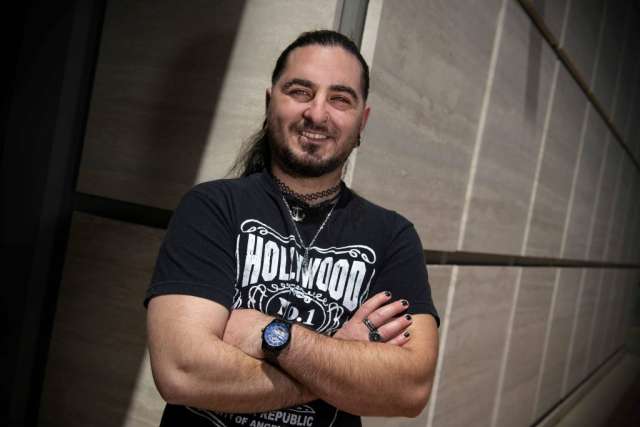
“For me, I came out young,” said Ardalan, 27. “The first time, I was four years old. That one kind of got pushed under the rug a little bit. My family just wasn't quite ready to understand and accept it.”
Ardalan had a huge advantage — a very supportive mother who accepted her child’s gender identity and brought the rest of the family along to build a support network.
"The whole issue really became obvious when I started high school in Calabasas,” Ardalan said. “My parents realized that, hey, this isn't going away. Even though I played male sports in high school, and lived that life, half the time I would wear women's underwear. I had an older brother, and I felt like I should be like him. This had gone beyond me just being a tomboy. I knew I was out of place in this girl's body."
At a time when most adolescents struggle with who they are, Ardalan needed his mother more than ever to address his unique challenge.
"My mom was so great,” Ardalan said. “Even though our family background is Persian, which usually doesn't accept this kind of thing, she encouraged me to embrace who I am if that's what I need to be happy. I realized, hey, this is something that I need to acknowledge and be brave and take care of it."
Although he had emotional support from family and friends, Ardalan knew there would be challenges ahead.
"That's where mom came through again,” he said. “She would Google all the questions and find out the best way to proceed. That was what led me to UCLA and the Gender Health Program."
Dr. Ng shepherded Ardalan through the gender affirmation process. "I didn't grow up like a girly girl, so like this was something that people kind of naturally saw as who I really was," Ardalan said.
One painful incident Ardalan recalls is when a friend referred to him as "It."
"Yeah, that was while I was in mid-transition,” Ardalan said. “I don't know if they're trying to be rude or whatever. Sometimes people don't know what to call you. But this person has actually really grown and matured since then.”
Ardalan said he will try to encourage others entering the program to stay positive and not let anyone else define them.
"The big message is, you’re not alone, and it gets better,” he said. “Yeah, there's more like you out there. You just haven't met them yet. So try to stick around the good people in your life, because, otherwise, it's not going to work.”
He added that part of this process involves educating society on how to treat transgender people.
"Why not just try to be understanding?” Ardalan said. “Every single trans person has their own experience. It's whatever they feel like they need and what they can do with medical options or not. You know, everyone doesn't have the privilege to do what I did.
“You know, love is love. Just be accepting and respectful, just like you should do for anyone. That's it.”
Learn more about the UCLA Gender Health Program.
Tina Daunt is the author of this article.



